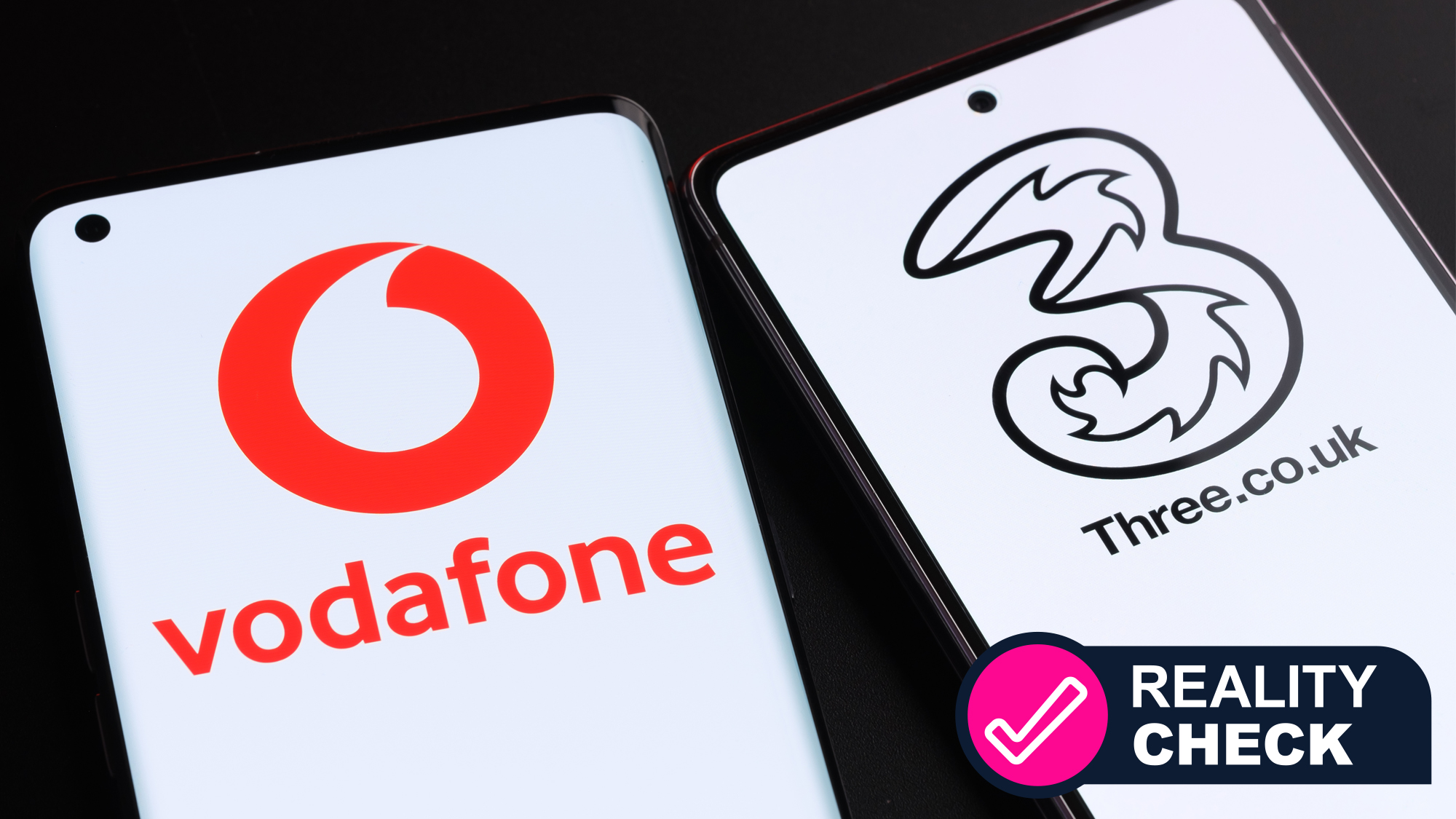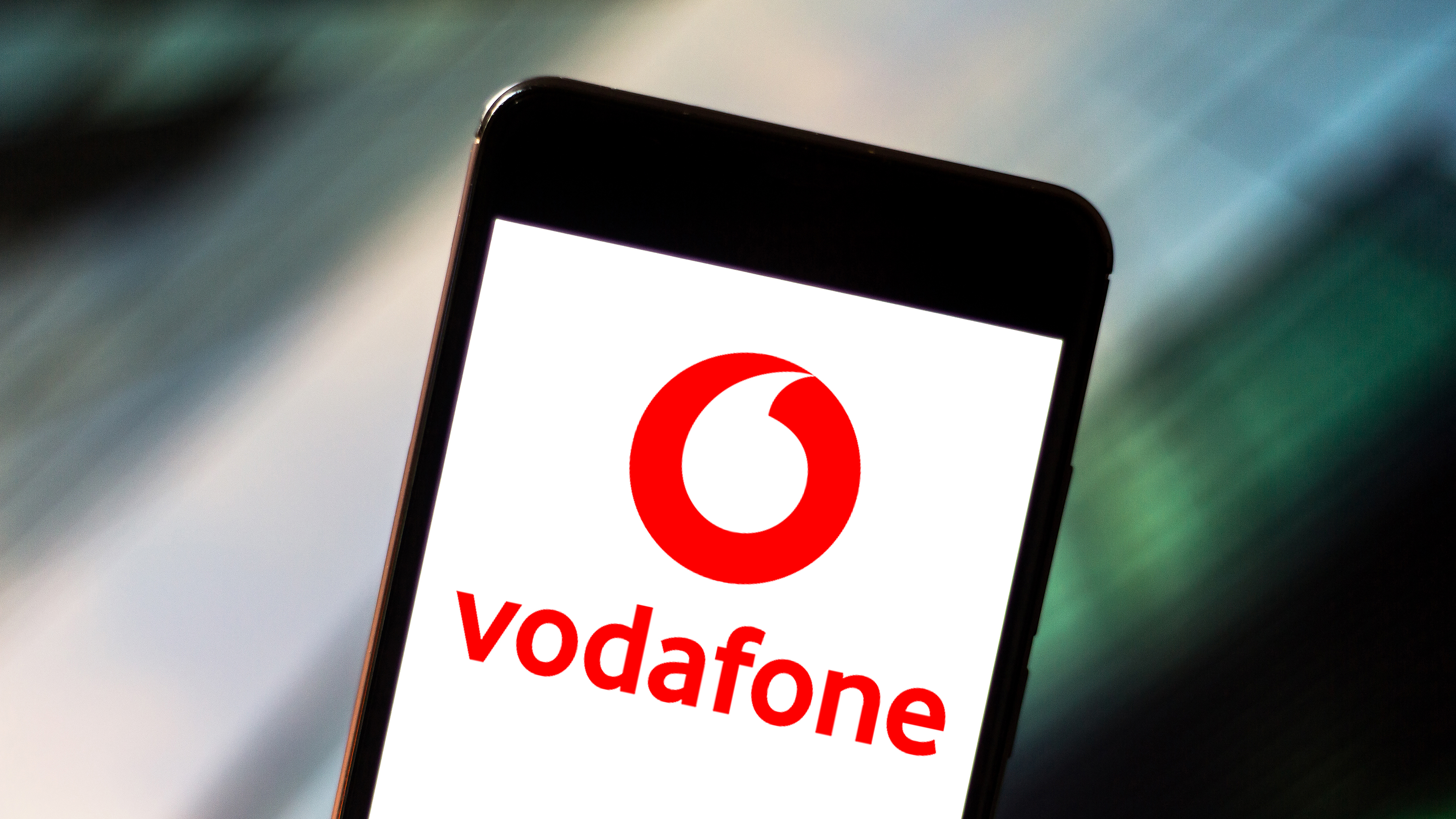
- UK regulator says the Vodafone and Three merger could now go ahead
- Both companies need to agree to price promises and 5G investment
- Last-minute objections could still theoretically scupper the merger
The long-mooted merger between Vodafone and Three, which would create the UK's biggest mobile phone operator, is close to getting the green light after supportive comments from the country's watchdog. But what exactly would that mean for mobile network consumers in the UK?
Ever since the £15bn merger was announced back in June 2023, opinions have been divided on what might happen – and whether or not it'll ultimately be a good deal for customers.
On the downside, evidence given to the Business and Trade Committee last year suggested that the typical result of these mergers is ultimately higher bills for consumers.
But in defending the deal, Vodafone's Chief Executive Margherita Della Valle slammed those findings and pointed to the merger's promise of much-needed investment in the UK's infrastructure.
Today's Competition and Markets Authority (CMA) statement says that Vodafone and Three would need to agree to "certain existing mobile tariffs and data plans for at least three years" plus network upgrades. So what happens next? Here's what experts are predicting.
What's the latest Vodafone and Three merger news?

Since announcing plans for a huge merger in June 2023, Vodafone and Three have been at loggerheads with the UK's watchdog about whether or not the deal should go through.
But today there's been a breakthrough that suggest the merger will now likely happen. The Competition and Markets Authority has now "provisionally" declared that its previous concerns about price rises and reduced competition could be remedied if Vodafone and Three agree to some stipulations.
Those stipulations include a legal obligation to invest in the UK's network infrastructure over the next eight year and agreeing to freeze existing prices on tariffs and data plans in the first few years following the merger.
Vodafone says it will need to study the CMA's remedies with Three, but that "we believe it provides a path to final clearance". In other words, it looks likely that the Vodafone and Three merger will now happen – and that's massive news for anyone who uses mobile networks in the UK.
What does the Vodafone and Three merger news mean for you?

Opinions are still split on whether or not the Vodafone-Three merger is good news long-term for UK consumers, but everyone agrees it would be a massive shakeup.
"Approval would mark one of the most significant developments in the history of UK mobile, heralding the arrival of a new market leader with over 29 million customers," said Kester Mann, Analyst and Director of Consumer & Connectivity at CCS Insight.
Right now, EE is the UK's most popular mobile network, according to Confused data, with around 25 million customers. O2 is close behind with 24 million customers, with Vodafone and Three currently behind those big two. A merger would, then, catapult the joint company (MergeCo) into becoming the new market leader.
In the short term, little would change for both existing and future customers. Right now, Vodafone says "existing Vodafone and Three contracts will stay the same". And the CMA's stipulations mean both networks will need to "commit to retaining certain existing mobile tariffs and data plans for at least three years, protecting millions of current and future Vodafone / Three customers (including customers on their sub-brands) from short-term price rises in the early years of the network plan".
So whether you're on Vodafone, Three, or one of the so-called Mobile Virtual Network Operators (MVNO) providers that piggyback on both networks, you should be protected from any price rises or big contract changes for the first few years following the merger.
The question is what happens after that – and in his analysis provided to the Business and Trade Committee on the merger last year, Professor Tommasso Valleti (former chief competition economist at the European Commission) said that "the answer is unambiguous" and that these mergers typically see "prices go up by 16%".
This means the longer-term result of the merger on consumers could come down to how successfully Ofcom (the telecoms regulator) and the CMA get Vodafone and Three to stick to those commitments on mobile tariffs, data plans, and wholesale deals for MVNOs.
Either way, the CMA seems confident that the Vodafone-Three merger will be a net positive for the UK's mobile networks. It says the deal would see "a multi-billion-pound commitment to upgrade the merged company’s network across the UK, including the roll-out of 5G". But it's not over the line yet.
What happens next for the Vodafone and Three merger?

Today's news doesn't mean the Vodafone-Three merger is a foregone conclusion.
The CMA's statement is only "provisional" and a final decision is due to take place sometime before the December 7 statutory deadline.
Some think this could open the door to some last-minute objections. "The watchdog’s statement won’t be welcomed by all,' said Kester Mann from CCS Insight.
"BT and Sky Mobile have sternly opposed the deal and are likely to vociferously attempt one final time to have it blocked before the CMA’s final deadline in less than five weeks," he added.
Still, the tone of the CMA's statement, and Vodafone's response, suggests that both think the merger will ultimately go through, if all parties can agree on those stipulations for protecting consumers from price rises and potentially harmful effects on rival MVNOs like Sky Mobile, Lyca, Lebara and iD Mobile.
In the short term, the merger shouldn't have a huge effect on existing Vodafone and Three customers due to the CMA's proposed stipulations. But the long-term landscape of the UK's mobile networks would undoubtedly change – and customers could ultimately end up footing a large amount of the bill for those much-needed infrastructure upgrades.







